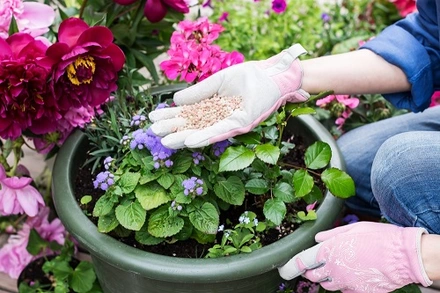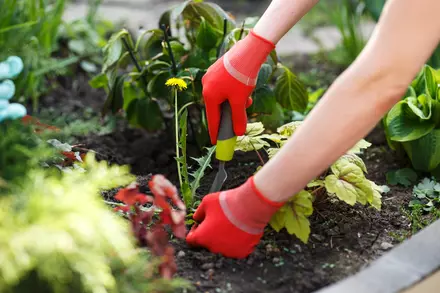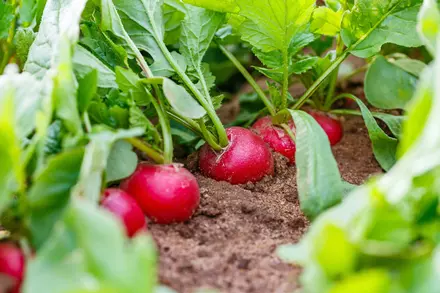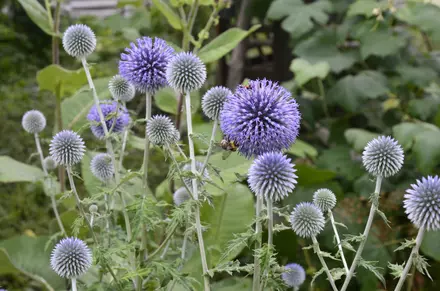Feeding summer-blooming plants

In summer, many of our favorite plants are at their best, covered with beautiful blooms that fill the garden with color and scent. And just like us, getting the right food at the right time helps them to perform at their best. Help your plants grow strong and healthy with our top tips on feeding summer-blooming plants.
Which plants should I feed in summer?
Plants growing in the ground don't always need or want extra feeding, as there are usually enough nutrients already in the soil, especially if you mulch your soil annually with organic material like garden compost or well-rotted farmyard manure. Look out for signs of poor nutrition, such as yellowing leaves or lack of flowers and fruit – if these occur, then your plants may need extra feeding.
Plants in containers need feeding regularly, as the nutrients in the compost will be rapidly used up by the plant, as well as being gradually washed out of the pot when the plants are watered.
Plants that flower continuously all through summer, like roses and bedding plants, will benefit from an extra feed even if grown in the ground.
Types of plant fertilizer
Plants need three key nutrients from the soil for healthy growth. These are:
- Nitrogen (N) for leafy growth
- Phosphorus (P) for healthy roots and shoots
- Potassium (K) for the production of flowers and fruit
Plant fertilizers list what's known as an N:P:K ratio on their packaging, showing the proportions of each of these elements contained in the fertilizer.
The main reason for feeding plants in summer is to boost the production of flowers and fruit, using fertilizers that are high in potassium. These are often called high-potash fertilizers – the term 'potash' refers to the makeup of the chemical compounds that contain the potassium.
High-potash fertilizers are available in both liquid and granular form. The liquid feeds, such as tomato feed, are ideal for container-grown plants. Granular feeds like sulfate of potash or rose fertilizer work well for plants in the ground, releasing their nutrients more slowly than a liquid feed.
How to feed summer-blooming plants
- As a general rule, always make sure the soil or compost is moist before applying fertilizer, even when using liquid feeds. Fertilizer applied to dry soil is difficult for plants to take up and can burn the plants' roots.
- Give roses grown in the ground a summer feed after the first flush of flowers is over, scattering a granular rose fertilizer or a general-purpose fertilizer around the base of the plant and using a hand fork to work it lightly into the soil.
- Feed container-grown roses and bedding plants like petunias, begonias, and geraniums fortnightly in summer with a high-potash liquid feed like tomato feed.
- Avoid overfeeding, as this can harm your plants. Always follow the manufacturer's instructions!



